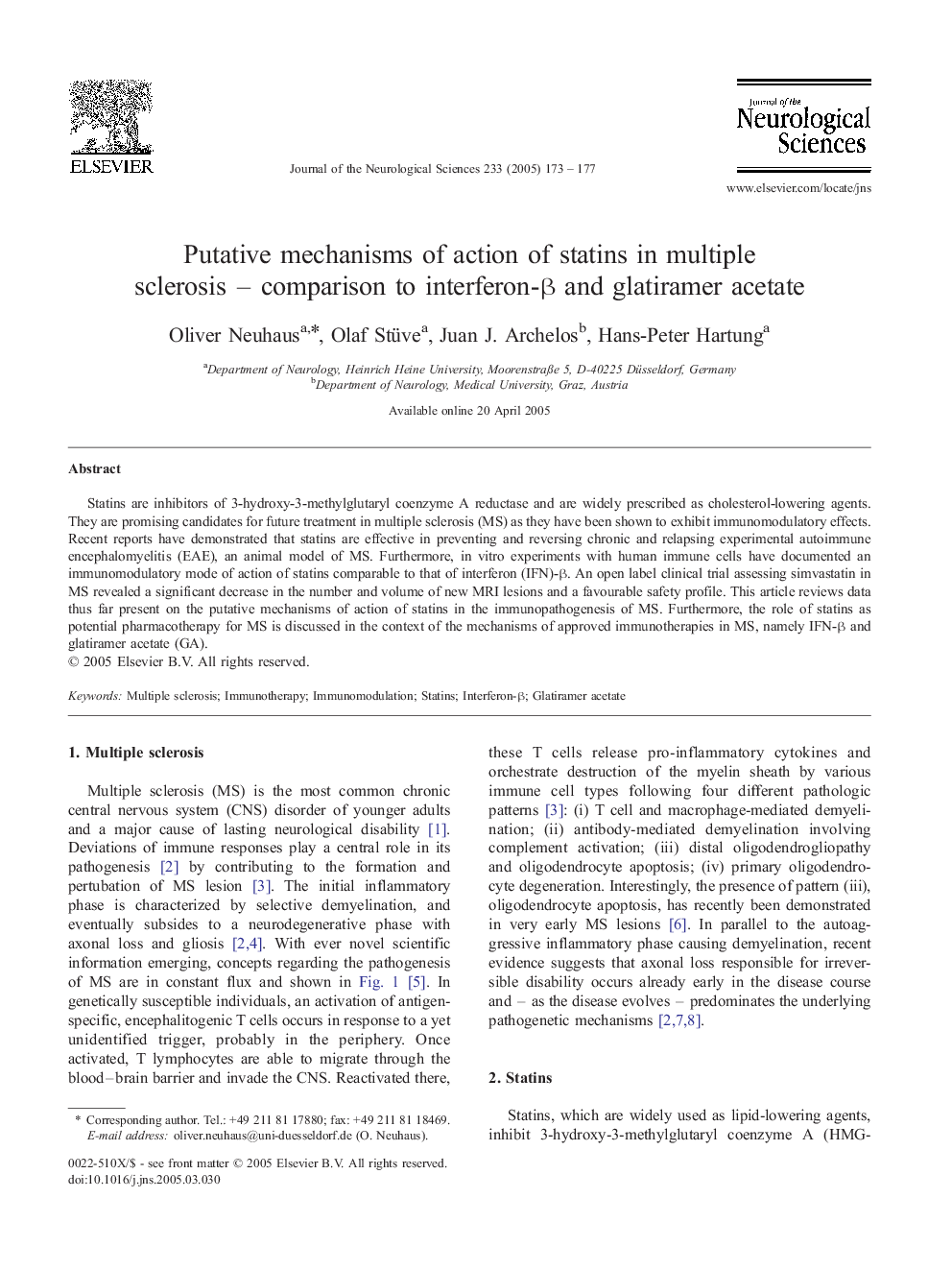| Article ID | Journal | Published Year | Pages | File Type |
|---|---|---|---|---|
| 9880328 | Journal of the Neurological Sciences | 2005 | 5 Pages |
Abstract
Statins are inhibitors of 3-hydroxy-3-methylglutaryl coenzyme A reductase and are widely prescribed as cholesterol-lowering agents. They are promising candidates for future treatment in multiple sclerosis (MS) as they have been shown to exhibit immunomodulatory effects. Recent reports have demonstrated that statins are effective in preventing and reversing chronic and relapsing experimental autoimmune encephalomyelitis (EAE), an animal model of MS. Furthermore, in vitro experiments with human immune cells have documented an immunomodulatory mode of action of statins comparable to that of interferon (IFN)-β. An open label clinical trial assessing simvastatin in MS revealed a significant decrease in the number and volume of new MRI lesions and a favourable safety profile. This article reviews data thus far present on the putative mechanisms of action of statins in the immunopathogenesis of MS. Furthermore, the role of statins as potential pharmacotherapy for MS is discussed in the context of the mechanisms of approved immunotherapies in MS, namely IFN-β and glatiramer acetate (GA).
Related Topics
Life Sciences
Biochemistry, Genetics and Molecular Biology
Ageing
Authors
Oliver Neuhaus, Olaf Stüve, Juan J. Archelos, Hans-Peter Hartung,
